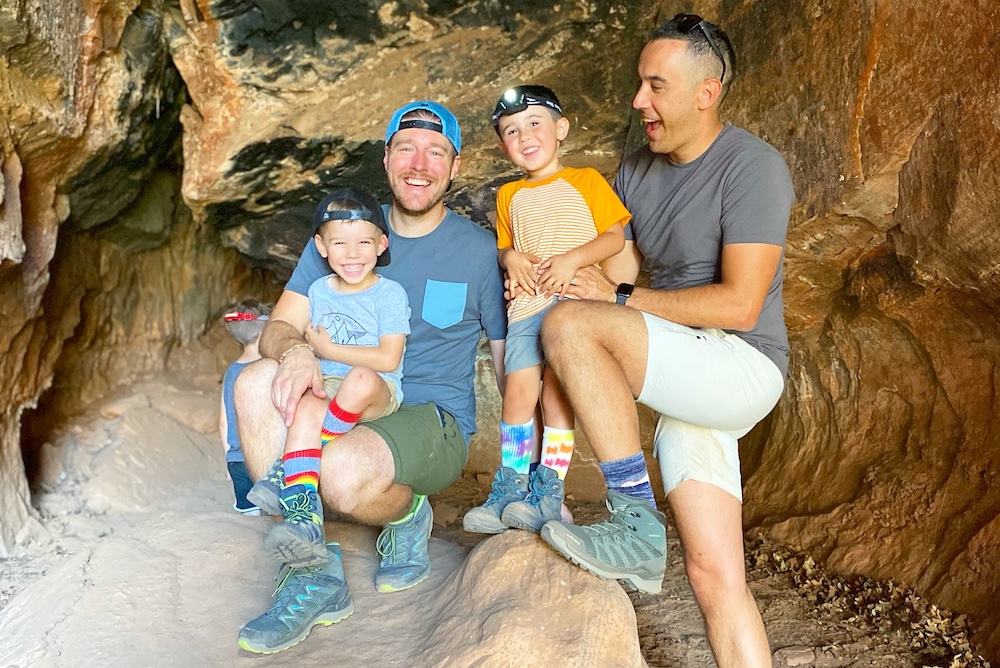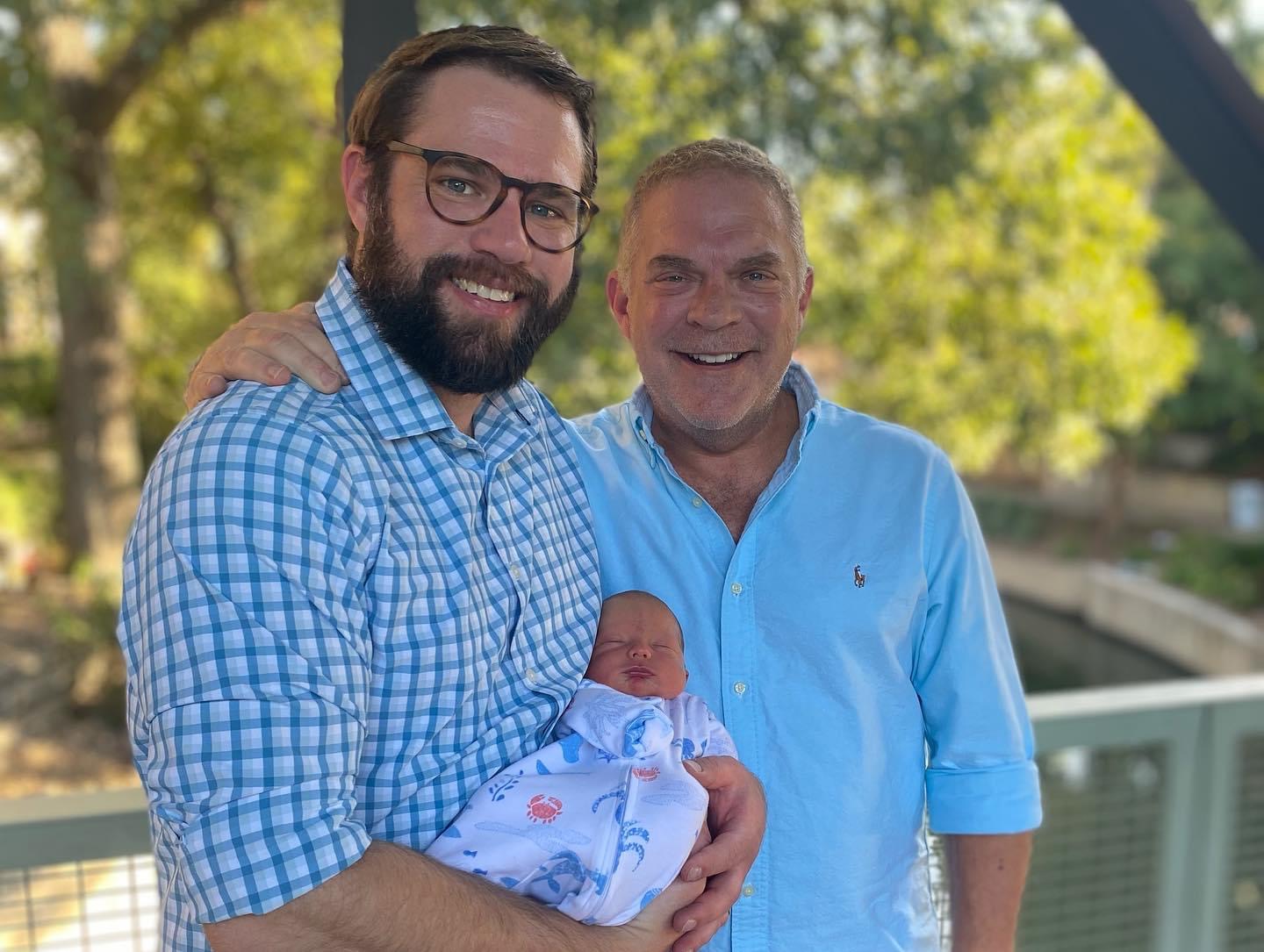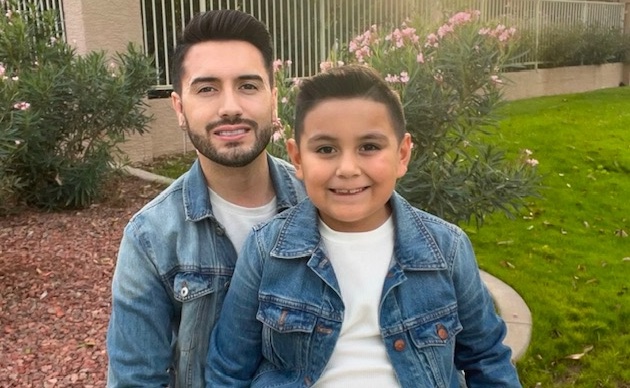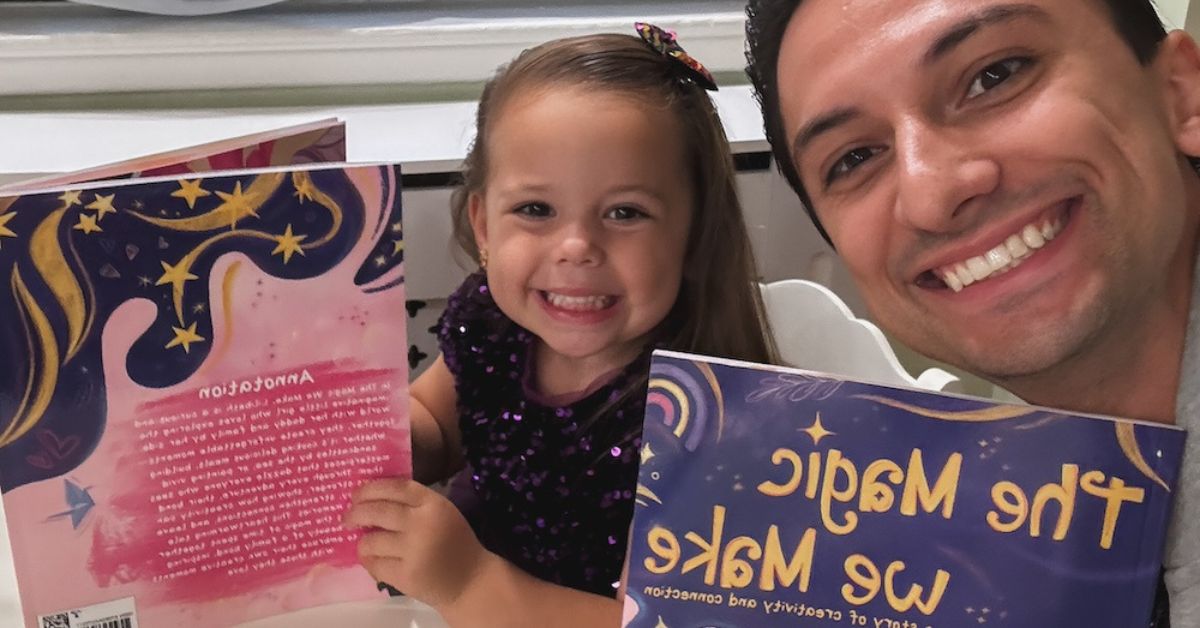Originally published May 4, 2021
Spence Chapin is one of the only adoption agencies that helps LGBTQ+ parents-to-be navigate international adoptions. They do so in two of the only countries that allow LGBTQ+ people to adopt from abroad; Colombia, and South Africa.
Like all children, kids in foster care benefit greatly from close, attentive, loving relationships from a young age. But for most foster children, it’s rare to get that essential interactive personal time with a familiar figure. Thankfully, Spence Chapin is making sure that changes for some foster kids in South Africa.
“Unfortunately for children in institutional care, they don’t have that individualistic care you’d see in a family setting,” Lauren Jiang said on the week’s episode of GWK the Podcast. “Despite any caregivers wishing to give all the love in the world, they just can’t. The ratios just don’t allow for it.”
Thanks to the local “Grannies,” and sometimes “Grandpas,” Lauren said more than 100 kids in South African orphanages now have someone they can truly call “their person” until they’re adopted.
According to UNICEF, there are 2.7 million children currently living in institutional care around the world. Thanks to Spence-Chapin’s International Granny Program, more and more of those children are now learning how to form those important, caring bonds with volunteer Grandmother-figures from their local communities who share their linguistic, cultural, religious, racial and ethnic background.
In addition to helping foster youth prepare for life after the foster care system, Spence-Chapin’s International Granny Program is also enabling hundreds of senior people to find a new lease on life, and a new form of stipend-based income, by getting involved in caring for local foster kids.
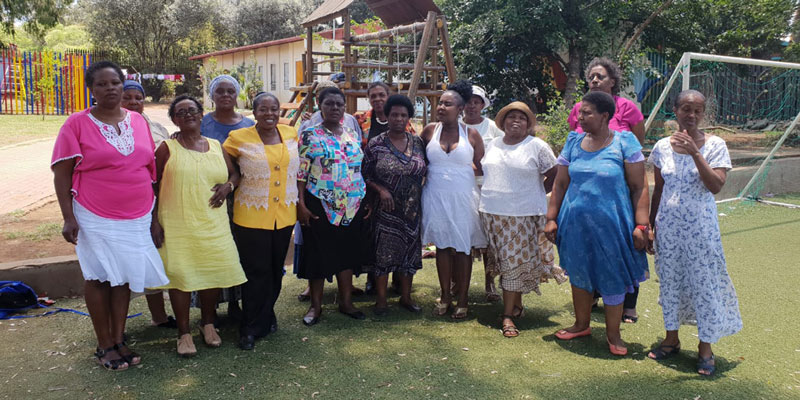
Spence-Chapin is a New York-based non-profit adoption and family services organization that has been around for more than 100 years, and is one of the only agencies that facilitates intercountry adoptions from South Africa to the U.S. The organization first launched its International Granny Program in 1998, working in several countries, including Moldova and South Africa.
The Program works by recruiting so-called ‘Grannies’, often older women whose own children are already grown up (but not limited to grandmas — grandpas are welcome too!) from local communities around cities like Johannesburg, South Africa.
After their initial childcare training, each Granny is paired with a child at their local foster institution, and five hours per day, five days per week, they care for and nurture that child.
The Grannies receive ongoing childcare training and support as their child grows up, until they are placed with a foster or adoptive family. Since many of the children are infants and toddlers, the Grannies’ training maintains a focus on skills like speech and language development, motor skills enhancement, and attachment-building.
On this episode of GWK the Podcast, Lauren explains that the “Grannies” are involved in basic things that parents would do, like attending doctors’ appointments, helping babies learn to walk, and playing with them for long periods of time.
“Each Granny is paired with just two children,” Lauren said. “They come in five times a week for 4 to 5 hours a day, and just loves on that boy or girl. They read, sing, dance, they make eye contact, they kiss, they say I love you.”
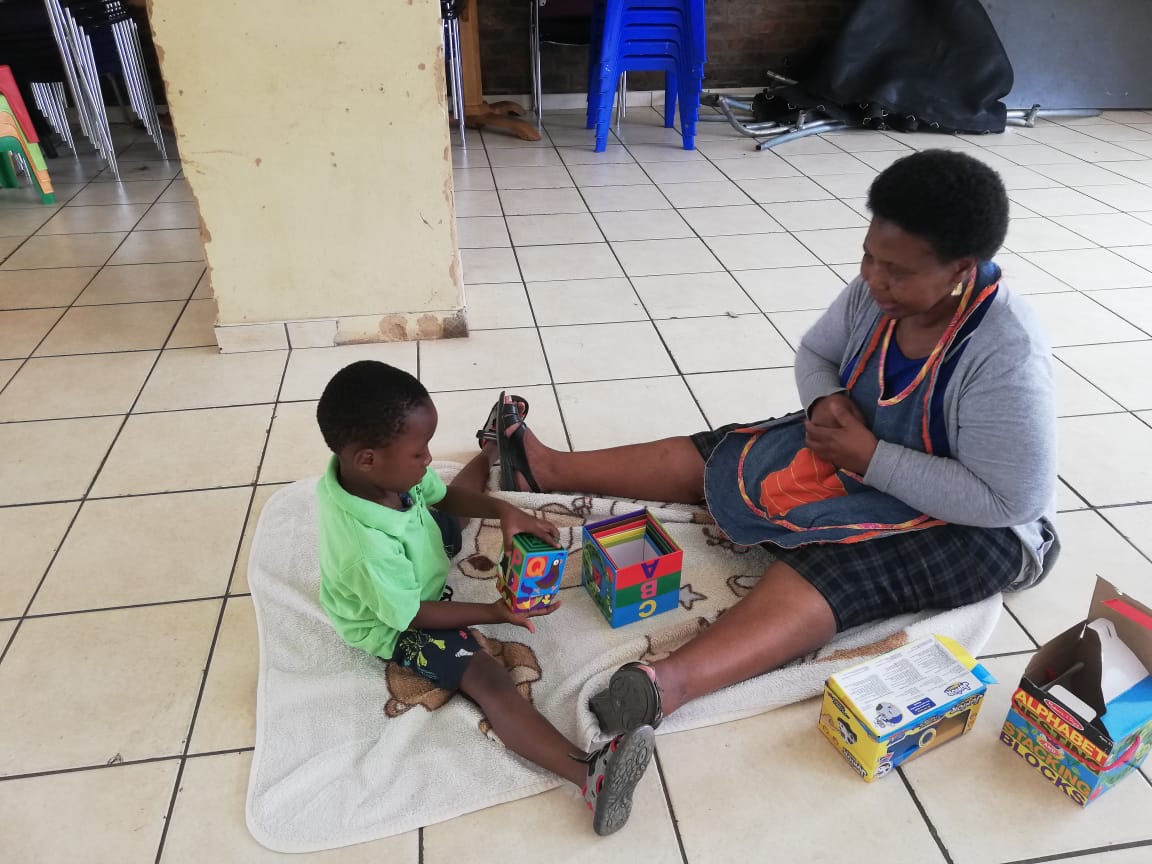
According to Christine G. Pohl, Director of Development at Spence-Chapin, the International Granny Program has demonstrated a “clinically significant impact” on many foster children’s emotional, mental, and physiological development and well-being.
“Children living in orphanages are often deprived of consistent, nurturing human interaction,” Pohl said. “They do not receive the essential one-on-one attention of a caring adult, which can contribute to lifelong developmental delays and challenges in their ability to form healthy attachments. The Granny Program uses interactive activities and techniques proven to help children foster healthy attachments and achieve developmental milestones.”
Pohl said some of the foster children adopted through Spence-Chapin by same-sex couples have benefitted from the Granny Program.
“There is a family with two dads that just adopted through our South Africa Adoption Program and whose son had a Granny,” Pohl said. “They just returned home from South Africa, where they had been there for quite some time due to COVID restrictions.”
The couple were going through the foster-to-adopt process for the first time, and Pohl said they are now settling into life in the U.S. with their four-year-old son, who has had a Granny since he was an infant.
“The boy’s Granny, Angie, was able to spend time with the family while they were in South Africa and the bond between her and the boy was clear,” Pohl said. “The dads also expressed their appreciation for “Gogo” Angie — Gogo is the South African word for Granny — and everything she did for their son.”
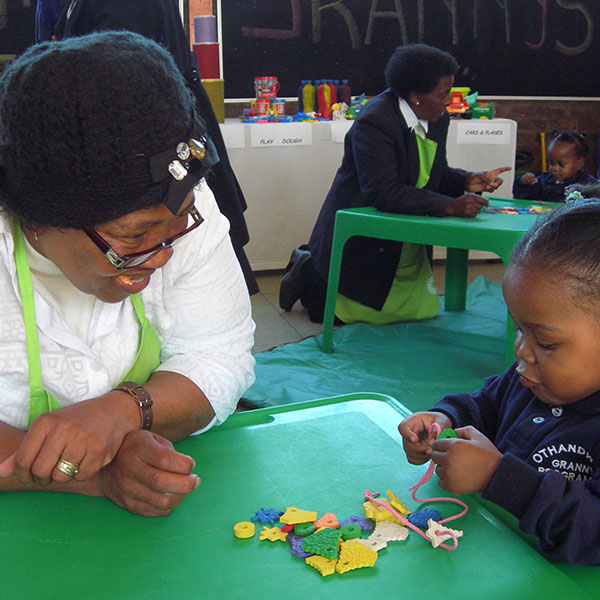
Pohl said it’s also evident that the program is incredibly fulfilling for many older members of communities, who are learning new skills and enjoy caring for the next generation.
“There is evidence that the individuals working as Grannies also benefit,” Pohl added. “They’re experiencing a renewed sense of purpose and efficacy.”
In a video that was part of Spence-Chapin’s Virtual Granny event on May 4th 2021, Granny Angie says she is thrilled the boy she has loved for the past four years is finally getting a loving family.
“I am so happy that today he is going with his Papa and Daddy, who he loves a lot, you can see,” Angie says in the video. “I am so happy for him.”
According to Pohl, the Granny Program has already benefited children and volunteers in Bulgaria, China, Colombia, Moldova, Russia, and South Africa, and throughout 2022 there are plans to expand the program into orphanages in Bulgaria.
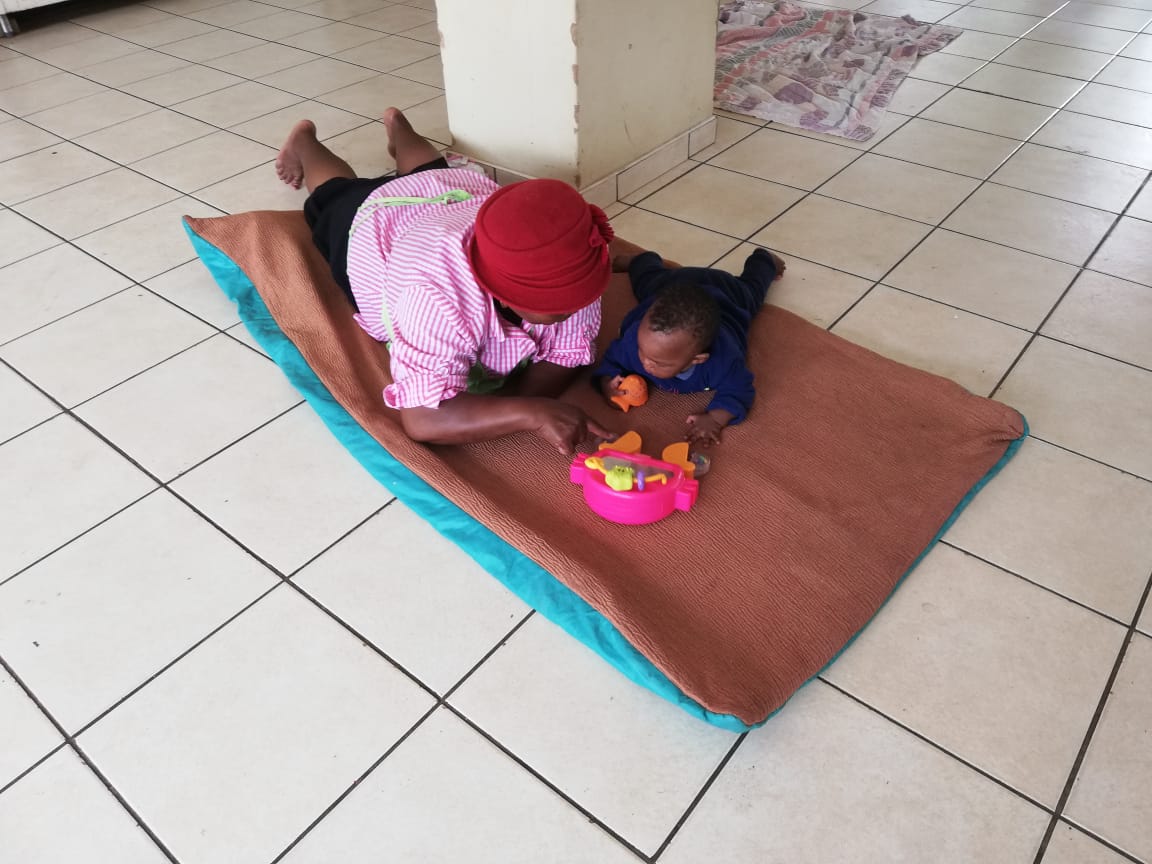
Many of the foster children at Jo’burg Child Welfare (JCW) benefit from a regular relationship with a Granny through Spence-Chapin’s program. JCW, one of South Africa’s oldest non-profit organizations, provides a range of direct services to abused, abandoned, neglected, orphaned and vulnerable children, including those who are infected or have been affected by HIV and AIDS.
With a ratio of around one caregiver to 30 babies and toddlers, Pohl said many of the children would spend long periods of time sitting in their cribs or on the floor if it weren’t for their Granny.
“From the reports we get back, children that came in at age two to three not speaking at all, within a few months of working with Grannies, they were socializing and communicating,” she said.
Spence-Chapin is focusing on raising money to bring the same life-changing Granny Program to more foster care locations across Colombia, where Pohl said orphanages tend to be much larger, with up to 200 children in each facility.
Click here to learn more about Spence Chapin and The Granny Program.
Listen to the full episode of GWK the Podcast with Lauren Jiang of Spence Chapin below, on Apple Podcasts, Spotify, or wherever you get podcasts.


